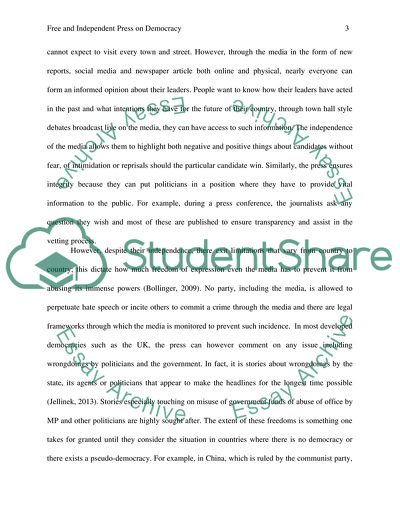Cite this document
(Free and Independent Press on Democracy Coursework Example | Topics and Well Written Essays - 2000 words, n.d.)
Free and Independent Press on Democracy Coursework Example | Topics and Well Written Essays - 2000 words. https://studentshare.org/journalism-communication/1854624-why-is-the-existence-of-a-free-and-independent-media-sector-so-important-for-democracy
Free and Independent Press on Democracy Coursework Example | Topics and Well Written Essays - 2000 words. https://studentshare.org/journalism-communication/1854624-why-is-the-existence-of-a-free-and-independent-media-sector-so-important-for-democracy
(Free and Independent Press on Democracy Coursework Example | Topics and Well Written Essays - 2000 Words)
Free and Independent Press on Democracy Coursework Example | Topics and Well Written Essays - 2000 Words. https://studentshare.org/journalism-communication/1854624-why-is-the-existence-of-a-free-and-independent-media-sector-so-important-for-democracy.
Free and Independent Press on Democracy Coursework Example | Topics and Well Written Essays - 2000 Words. https://studentshare.org/journalism-communication/1854624-why-is-the-existence-of-a-free-and-independent-media-sector-so-important-for-democracy.
“Free and Independent Press on Democracy Coursework Example | Topics and Well Written Essays - 2000 Words”. https://studentshare.org/journalism-communication/1854624-why-is-the-existence-of-a-free-and-independent-media-sector-so-important-for-democracy.


